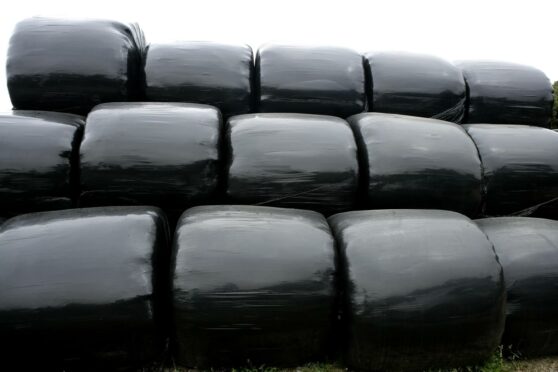Farm leaders have urged HMRC to ditch plans to introduce a £200 a tonne plastic tax on silage wrap from April 1.
The National Sheep Association (NSA) warns the tax could increase costs for UK farmers by up to 10%, while NFU Scotland (NFUS) says the plans were being introduced at a time when farmers are already facing soaring input costs.
Both organisations have called on HMRC to ditch the plans, which would see a plastic packaging tax (PPT) applied to silage wrap, and said they go against previous guidance from Defra which classified silage wrap as a product, and not packaging.
“The potential additional cost of PPT on silage wrap to UK farmers is estimated to be equivalent to an extra 10% in costs,” said NSA chief executive, Phil Stocker.
“That in itself is bad enough at a time when most inputs costs are increasing but it’s made even worse by new trade deals with countries that are not subject to the same costs.”
NFUS environmental resources policy manager, Sarah Cowie, said: “The timing of this unexpected announcement, without prior consultation with industry, does not give either the agricultural or plastic industries much time to adjust, and comes at a time of soaring on-farm input costs.”
She said the union had been lobbying MPs for a change to the rules since it emerged silage wrap would no longer be exempt from the plastic packaging tax.
Ms Cowie added: “In our arguments we have been crystal clear that wrap is an integral part of the production process when making silage and should not be classed as packaging; this is an argument previously agreed and accepted by Defra.
“That makes HMRC’s decision in December to include silage wrap as a taxable material without consultation with farming stakeholders and without appropriate alternatives being readily available on the market deeply disappointing.”
An HMRC spokeswoman said: “The Plastic Packaging Tax will encourage the use of recycled plastic instead of new material within plastic packaging.
“This will create greater demand for recycled plastic, and in turn stimulate increased levels of recycling and collection of plastic waste, diverting it away from landfill or incineration.”

